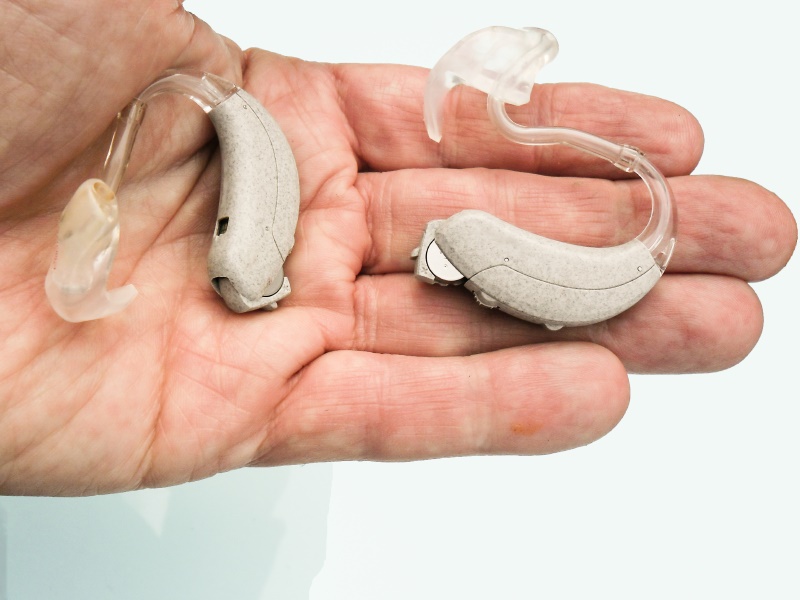
To keep your hearing aids working effectively for years to come, you’ll want to learn about proper care and maintenance. And while it may seem like an additional burden, with the right system your hearing aid care will come to be simple and automatic.
The trick is developing productive habits.
If you assimilate your hearing aid care into your day-to-day and nightly routines, pretty soon it won’t feel like any additional work at all.
Below are a few tips for the day-to-day care of your hearing aids (which your hearing specialist will also go over with you):
Clean your hearing aids on a daily basis – Attempt to include your hearing aid cleaning into your nightly routine, so it becomes as automatic as brushing your teeth. This is vital because daily hearing aid cleaning can prevent the build-up of earwax, dirt, and dust into the different parts of the hearing aid, which can cause distorted sound with time.
You’ll want to clean your hearing aid with a smooth, dry cloth, while avoiding any liquids that can destroy the hearing aid electronics. Talk with your hearing specialist for specific guidelines on cleaning each model of hearing aid.
You may also consider buying a hearing aid sanitizer, which uses ultraviolet light to safely and thoroughly kill harmful pathogens. Hearing aid cleaning kits are also available with all of the tools you’ll require to safely and securely clean the device without causing harm to the electronics.
Always check the batteries – Hearing aid batteries should be examined and replaced frequently to assure peak hearing aid functionality. Consider using a battery tester early in the day to assure you have a sufficient amount of power for the rest of the day, and keep an extra set of batteries on hand.
Before bedtime, when your hearing aids are not being used, shut them off and store them in a cool, dry place with the battery door open.
Store your hearing aids in a safe place – With respect to storage, you’ll want to try to remember three things:
- Keep the hearing aids away from moisture. This means that storing your hearing aids in the bathroom is probably a bad idea.
- Try to avoid subjecting the hearing aids—and hearing aid batteries—to temperature extremes. You’ll want to store your hearing aids in a cool, dry place.
- Avoid storing your hearing aids out in the open, where they can become damaged.
We highly recommend storing your hearing aids in a case or drying kit inside the drawer of a bedroom side-table. This will protect the hearing aids from moisture, temperature extremes, and damage from being pushed off the table.
Also, always remove your hearing aids before taking a shower, swimming, or using a hair dryer or hair spray.
Maintain ear hygiene – Even though earwax has many helpful attributes, including protection and lubrication of the ear canal, it can cause severe damage to your hearing aids. As it gets wedged within the hearing aid hardware, sound can become distorted.
Ensure that you’re maintaining proper ear hygiene, and if you experience significant earwax, think about booking a consultation with a professional.
Properly put in your hearing aids – While inserting your hearing aids, lean over a table or soft surface in the event that the hearing aids fall. Hearing aids are made with sensitive electronics, so a fall on a hard surface could cause significant damage.
Even with vigilant cleaning and maintenance, after a while the hearing aid will call for more comprehensive cleaning or repair.
To make sure that you continue to get the best sound possible, we encourage getting your hearing aids professionally cleaned by a hearing specialist a minimum of twice per year.
Hearing care professionals can provide you with a deep cleaning, a tune-up, and will sometimes replace parts. Staying on top of this periodic maintenance will prolong the life of your hearing aids and will ensure that you get the best sound.
